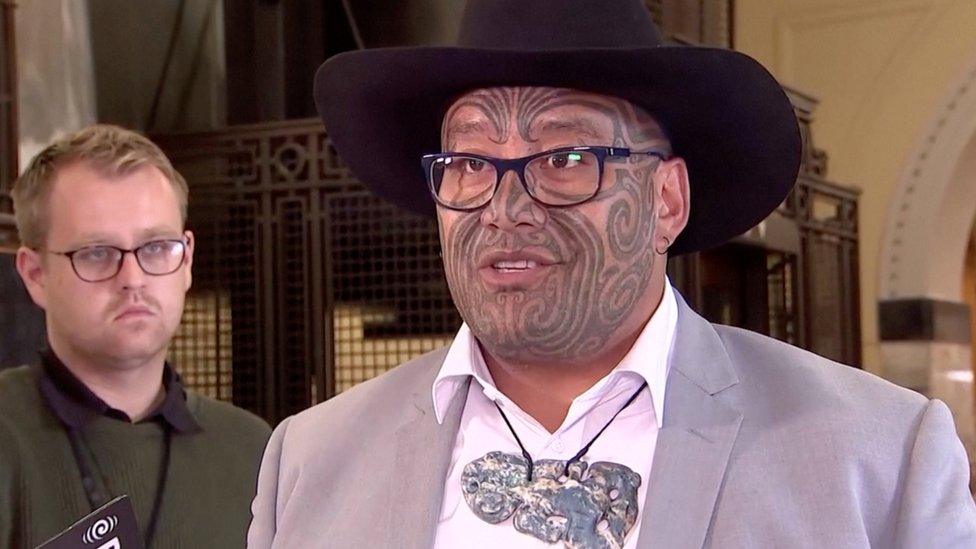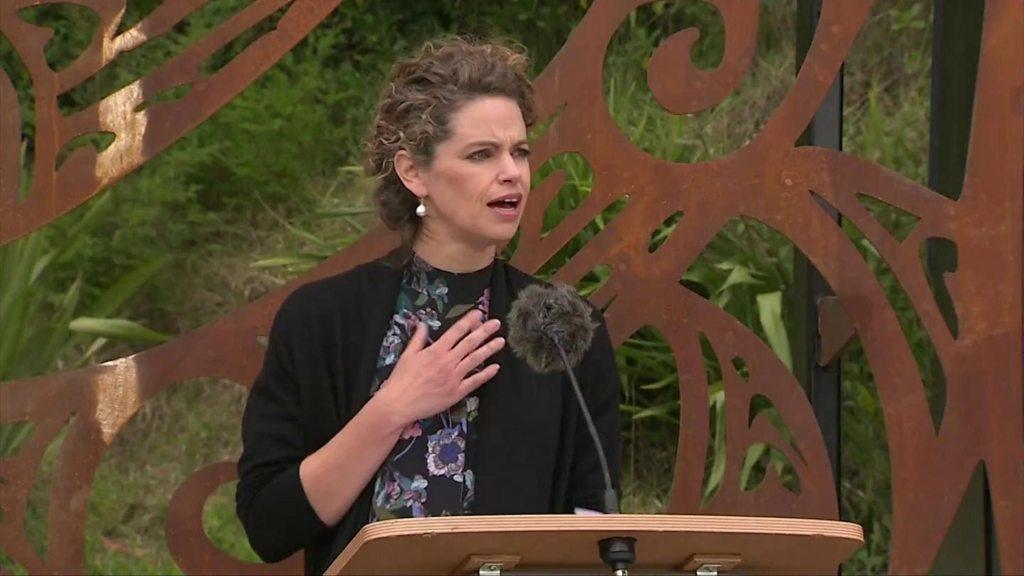New Zealand parliament says ties not mandatory after Maori MP ejected
- Published

Rawiri Waititi said the issue was a matter of "cultural identity"
New Zealand's parliament has backed down in a dispute with a Maori MP who refused to wear a tie.
Rawiri Waititi was allowed to address the chamber, a day after being ejected for breaking its dress code by wearing a traditional pendant called hei-tiki instead of a tie.
The parliament speaker later said ties would no longer be required as part of "appropriate business attire".
Mr Waititi said it was a "win for the many generations to come".
It means that parliament is a place that people "can freely express their cultural identity", he told the BBC's Newsday programme.
"This was always about the greater cause of the subjugation and assimilation that Maori have had to face for the past 181 years," he said.
Mr Waititi was ejected from parliament on Tuesday over a rule that male MPs can only ask questions in the debating chamber if wearing a tie.
Speaker Trevor Mallard twice prevented the Maori Party co-leader from asking questions before he was removed from the chamber.
"It's not about ties, it's about cultural identity mate," Mr Waititi said as he left the room.
The incident marked the latest dispute between the two men over the issue. Late last year, Mr Waititi was told that he would be ejected from the House if he did not wear a tie.
The MP has previously called ties "a colonial noose".
When he returned on Wednesday, he was given permission to ask a supplementary question while wearing his Maori pendant, he told the BBC.
Mr Mallard later announced that following a majority decision by the Standing Orders Committee - which reviews and considers the rules that govern how the House operates - ties would no longer be required.
"As Speaker, I am guided by the committee's discussion and decision, and therefore ties will no longer be considered required as part of 'appropriate business attire'. I acknowledge those who felt this was an important issue worthy of further consideration," he wrote on Twitter.
Prime Minister Jacinda Ardern previously said she did not object to people refusing to wear ties, but that there were bigger things to be focusing on.
"I don't think New Zealanders care about ties," she said.

You may also be interested in:
Tina Ngata says Maori people are still suffering under the legacy of colonialism
Related topics
- Published7 October 2019

- Published5 December 2020

- Published2 October 2019
